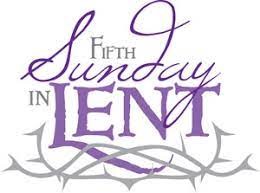Views from the Pews – Sunday, March 26, 2023
Brothers & Sisters:
My major occupation this Lenten Season is reflecting on the Lord’s Prayer, so you will understand that every time I have an opportunity to speak or to write, the subject would be a part of the Lord’s Prayer. This week my full attention will be given to the words, “Forgive us our sins, as we forgive those who sin against us.”
To appreciate the importance of this request we have to see it in the context of the whole mission of Jesus. He came announcing God’s Kingdom and God’s Rule. In the words of Tom Wright, “God was at last liberating Israel from slavery and setting the whole world back to normal. What his contemporaries wanted, politically, socially, culturally and economically, was an end to oppression and exile…. Oppression and exile, according to the prophets, had come about because of Israel’s sin. So, if Israel was set free from oppression and exile, that event of liberation would be, quite simply, the forgiveness of sins.”
Put in simple terms, the preaching of John the Baptist and the preaching of Jesus emphasized that ‘the Forgiveness of sins could be likened to a new Exodus.’ God had come in the midst of his people to take up his power and reign. God was in the business of offering forgiveness. Not only did John declare that Jesus was the Lamb of God who had come to take away the sin of the world but note how often Jesus said directly to persons to whom he was ministering, “Your sins are forgiven!”
We need to understand, therefore, that in the Lord’s Prayer, the request for the forgiveness of sins, is a ‘Cry for the Kingdom!’ In Jesus, and supremely through his suffering and death on the cross, God is offering forgiveness to all who repent. In fact, the story of the Prodigal Son reminds us, that when the son made up his mind to return to his father, the father did not sit and wait for him to come all the way, but ran to him, and embraced him, and put on a great feast for him. The ‘Running Father’ presents an amazing picture of God’s readiness to forgive. Forgiveness must never be reserved for the “deserving”, that is the style of the “Elder Brother” not of the “Running Father.”
We must not take the words, “as we forgive those who sin against us” to mean that we can merit our forgiveness by forgiving others, because it is all grace on God’s part. What we can in fact say, is that no one who truly appreciates the extent of God’s forgiveness could demonstrate any reluctance in forgiving others. Understanding God’s forgiveness is what drives us to forgive others.
Contributed

